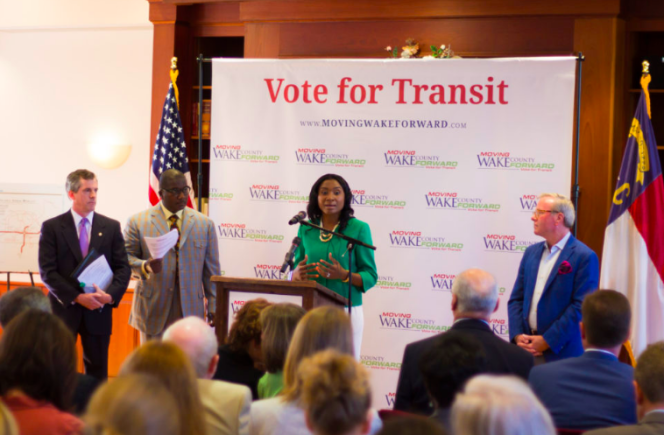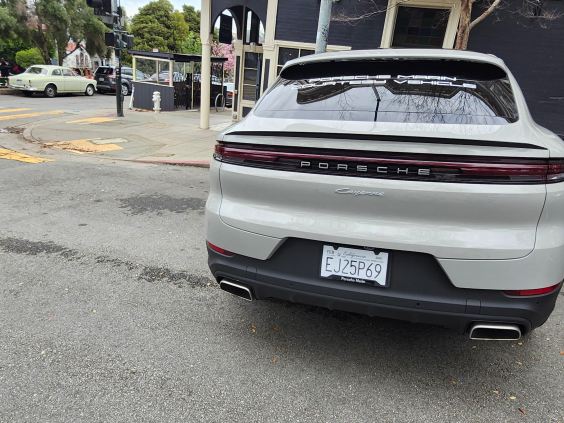Last week we asked readers to help sort through the highs and lows of the past year in streets and transportation. Here's what rose to the top of the polls, as well as our review of the heroes and villains of 2016.
Thanks for reading and enjoy the New Year -- we'll be back to our daily publishing schedule on Tuesday.
Best Sign of Progress: Voters Decide to Invest in Transit
If you're looking for silver linings to the results from November 8, this is a good place to start. At the local level, voters did a lot to advance transit.
Major transit expansion measures passed in Seattle, Los Angeles, Raleigh, and Indianapolis. Atlanta voters approved the first major expansion of MARTA in decades. Of the big transit initiatives on local ballots, only Detroit's regional transit plan failed, and that was a very narrow defeat.
Biggest Local Failure: The D.C. Metro Death Spiral
The colossal meltdown of D.C. Metro was readers' choice for biggest local failure of 2016. Despite a booming local economy and high-profile recent expansions, Metro has managed to actually shed passengers in the last 10 years. After a string of dangerous smoke and fire incidents, one of which proved fatal, the feds stepped in this year to assume safety oversight from WMATA -- and at one point instituted an emergency closure that shuttered all rail service in the middle of the week. Now, facing a major budget shortfall, Metro is weighing a combination of service cuts and fare hikes, a recipe for another ridership decline that may necessitate more cuts.
Worst Victim Blaming: Kalamazoo Helmet Lecture
Even in the most egregious cases of driver recklessness, local reporters struggle to contain their impulse to blame the victims of fatal traffic crashes. This June, an intoxicated motorist ran over and killed five cyclists in Kalamazoo, Michigan. The victims were out for a training ride and were all wearing helmets. The man who hit them and fled the scene was reportedly high on pain pills and muscle relaxers.
Still, a Grand Rapids newscaster thought of this crash as a great opportunity to remind cyclists to "practice bike safety," and reporter Sarah Sell's tips included wearing a helmet.
Worst Trend: Rising Road Carnage
Bucking a long-term decline, traffic deaths are now on the rise in the United States. In 2015, the nation saw the biggest increase in traffic fatalities in 50 years, and the trend accelerated in the first six months of 2016. The increase is even more pronounced among pedestrians and cyclists.
Cheap gas and a growing economy have led to more driving mileage, and that surely explains part of the increase, but not all of it. Other factors have been debated, but there's a growing consensus that in-car distractions like mobile devices and complex dashboard displays are also playing a role.
Heroes of 2016
Atlanta Beltline visionary Ryan Gravel took a bold stand when he abruptly resigned from the board of the organization charged with raising money for a ring of parks, trails, and transit around the city of Atlanta. Gravel said his resignation was necessary to highlight the rising rents resulting from the project and advocate for more robust solutions for people at risk of being displaced.
The organizers of the "Untokening" -- Zahra Alabanza, Carolyn Szczepanski, Adonia Lugo, Naomi Doerner, Anthony Taylor, and Sahra Sulaiman -- convened a national gathering in Atlanta this fall to elevate the voices people of color, who have been marginalized for too long in the safe streets movement.
This was the year that Houston's top-to-bottom bus network redesign proved that it's working, with bus ridership rising more than 3 percent in the 10 months since September 2015 while bus ridership declined in other Texas cities. The redesign would not have happened without local bus rider, blogger, and agitator Christof Spieler, who was appointed to Houston Metro's board in 2010. The Houston bus network overhaul is now inspiring cities around the country, from Columbus to Denver, to do the same.
Villains of 2016
This was the year that reality caught up to the hype of Uber's self-driving car initiative. After an Uber self-driving car got caught running a red light through a crosswalk in San Francisco, the company admitted the cars can't handle some common urban traffic situations very well. Nevertheless, when California regulators tried to pull the plug on Uber's pilot, the company blatantly flouted the law before finally capitulating a few days later.
Forget about Bridgegate. New Jersey Governor Chris Christie's biggest transportation scandal is that he ran New Jersey transit into the ground and produced a transportation funding crisis so severe, construction work had to be temporarily halted across the state.
After trading in anti-semitism and misogyny at Breitbart, Steve Bannon took his propaganda skills to the Trump campaign and parlayed that gig into a frighteningly influential White House advisor position. Bannon landed on this list because he claims to be a big behind-the-scenes booster of Trump's infrastructure plan. He told the Hollywood Reporter that he's pushing infrastructure spending as part of his "economic nationalist" agenda, but demonstrated complete cluelessness about the present-day infrastructure needs.






